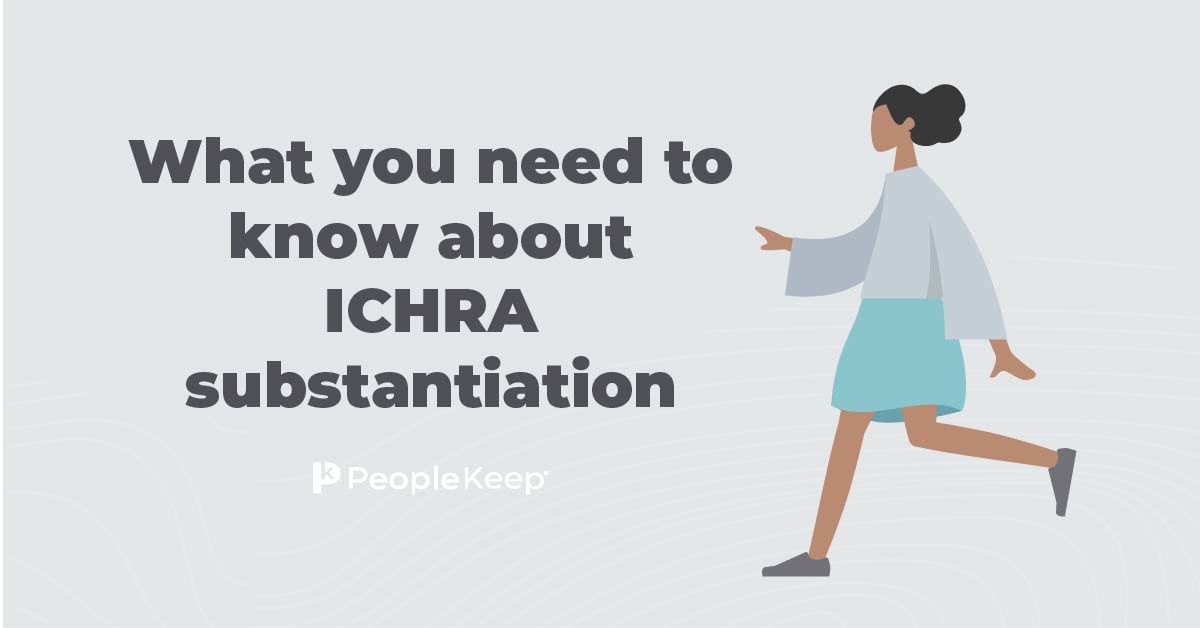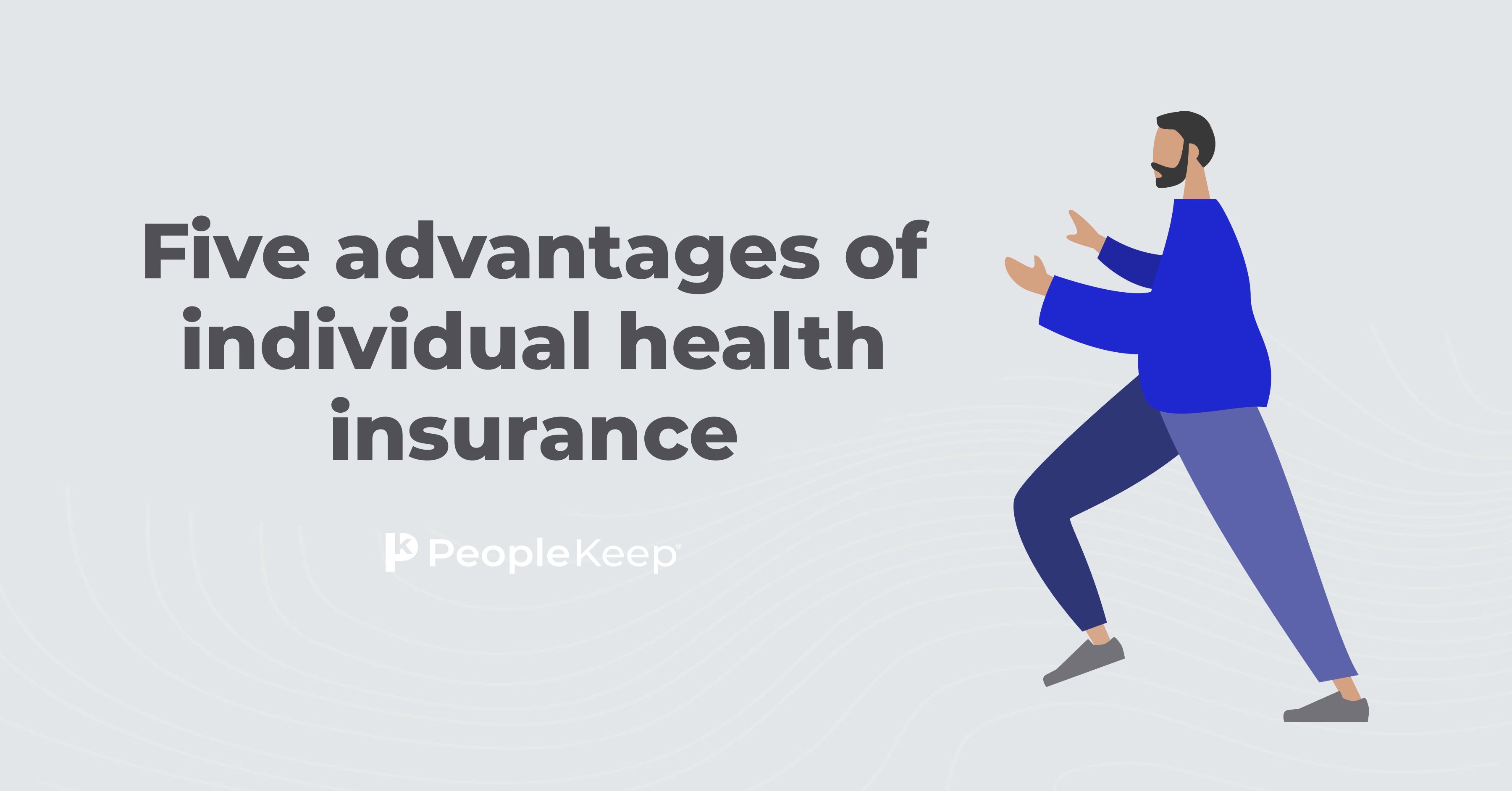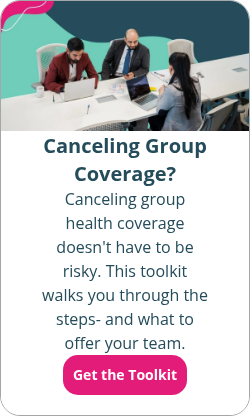Guide to MEC plans
By Holly Bengfort on April 24, 2024 at 6:36 AM
Some employers must provide a health insurance plan with minimum essential coverage (MEC) to avoid penalties under the Affordable Care Act (ACA) and ensure employees have access to essential healthcare services. In some cases, these employers may consider a type of group plan called a MEC plan. However, simply providing a no-frills MEC plan instead of a more comprehensive health benefit may not be enough to meet the needs of your employees.
In this article, we'll go over the limitations of MEC plans and explore additional options that offer comprehensive coverage.
Takeaways from this blog post:
- MEC plans, or skinny plans, offer basic medical care and preventive services to help your employees maintain good health.
- Basic MEC plans are often cheaper than traditional group health plans but may cost your employees more out-of-pocket.
- To attract and retain top talent, employers should consider offering health coverage beyond MEC plans to meet the diverse needs and preferences of their workforce.
What is minimum essential coverage (MEC)?
Minimum essential coverage (MEC) is health insurance that meets the ACA's individual shared responsibility provision requirements, also known as the individual mandate. These types of plans provide coverage for preventive services and the 10 essential health benefits.
Here are some examples of plans that offer MEC coverage1:
- Employer-sponsored coverage, such as group health plans and COBRA
- Coverage purchased through the individual market, such as a qualified health plan from the Health Insurance Marketplace
- ACA-compliant coverage you purchase directly from an insurance company
- Government-sponsored health programs, such as Medicaid, Medicare, and CHIP plans
- TRICARE, which covers military service members and their families
- Grandfathered plans
- Student health plans that are ACA-compliant
Policies not regulated by the ACA and not classified as major medical coverage don't qualify as MEC.
This includes2:
- Short-term health insurance
- Discount plans
- Limited-benefit plans
- Critical illness insurance
- Accident supplements
- Dental/vision plans
While there are no longer penalties for individuals who don’t have MEC, some organizations must still provide plans with MEC to their employees.
The ACA requires applicable large employers (ALEs)—organizations with 50 or more full-time equivalent employees (FTEs)—to comply with the employer shared responsibility provisions (ESRP), also known as the employer mandate. The employer mandate requires ALEs to offer affordable health insurance that meets both MEC and minimum value (MV) to at least 95% of their full-time employees or face potential federal tax penalties for noncompliance.
What is an MEC plan?
An MEC plan isn’t the same as minimum essential coverage. MEC plans, or skinny plans, refer to bare-bones coverage plans that meet the requirements of the ACA and ERISA but not much more. These plans provide a basic level of medical care and preventive services to help individuals maintain good health, often at a lower cost than more comprehensive coverage.
When we mention an MEC plan, we’re referring to these skinny plans, not comprehensive coverage that meets MEC standards.
The pros of MEC plans
With rising healthcare costs, employers need to find health insurance coverage that they can afford to offer. Due to their minimal coverage, MEC plans are often cheaper than traditional health insurance. This makes them an attractive option for employers who want to offer a health benefit that satisfies the ACA without breaking the bank.
MEC plans enable employees to access essential health services and preventive care. By providing health coverage for routine check-ups, screenings, and treatments, these plans help employees avoid the high costs of paying for these services themselves. MEC plans also protect employees from major financial hardship in the event of an unexpected illness or emergency medical care.
The cons of MEC plans
While offering an MEC plan is a step in the right direction, a minimum level of coverage may not be enough to satisfy and retain your employees in the long run. Here are a few reasons why:
Limited health coverage
MEC plans may cover essential health benefits, but they often have limitations when it comes to more specialized services or treatments. Employees may find themselves with high out-of-pocket costs or limited access to certain healthcare providers.
Employee satisfaction
Offering a MEC plan as the only healthcare option may not meet the diverse needs of your workforce. Employees have different healthcare needs and preferences, and a one-size-fits-all approach may not be enough to keep them satisfied.
Employee retention and recruitment
In today’s competitive labor market, offering a comprehensive benefits package, including healthcare options beyond MEC plans, can help attract and retain top talent. According to our 2022 Employee Benefits Survey Report, 82% of employees say that the benefits package an employer offers is an important factor in whether or not they accept a job.
Employees value benefits that meet their individual needs and contribute to their overall well-being. To address these concerns, consider offering a range of healthcare options to your employees, including more comprehensive plans that go beyond basic coverage. Providing choices and flexibility in healthcare benefits can help meet the diverse needs of your workforce and improve overall satisfaction and retention.
Affordable alternatives to MEC plans
Many employers consider MEC plans for the affordable coverage they provide. But if you're trying to save money on employer-sponsored coverage, an MEC plan isn't your only option. Health reimbursement arrangements (HRAs) are cost-effective alternatives to traditional group health insurance plans.
With the individual coverage HRA (ICHRA), you can offer a quality health benefit on a budget. This IRS-approved benefit allows employers to reimburse employees tax-free for their qualifying individual insurance coverage rather than buying it for them.
You simply set a monthly allowance that's within your budget. Then, your employees purchase the coverage and healthcare services that are right for them. Employees submit proof of their eligible medical expenses, and you reimburse them up to their allowance amount.
There are more than 200 HRA-eligible medical expenses. Some examples include:
- Individual health insurance premiums
- Prescription drugs
- Over-the-counter medicine
- Preventive services
- Primary care visits
- Urgent care visits
- Chiropractic care
- Vision care
- Dental care
- Mental health counseling
An ICHRA gives employees a sense of empowerment. Our report found that 65% of employees surveyed value choosing their own benefits. An ICHRA allows each employee to select their own individual health insurance policy that meets MEC, tailored to their preferences, through an insurance broker or health insurance exchanges. This gives them the opportunity to choose a plan that suits their needs in terms of network, doctors, and monthly premiums.
Plus, when you set up your ICHRA, you can customize allowances and eligibility by employee class. For example, you can offer full-time employees a monthly allowance of $650 and your part-time employees $350. Typically, HRA allowances should be consistent within each employee class, but employers have the option to make distinctions based on the employee's age or family status.
An ICHRA can also help ALEs meet the ACA’s employer mandate as long as you offer your employees an allowance the IRS considers affordable.
Conclusion
While minimum essential coverage (MEC) plans are a good starting point for providing basic health insurance coverage, they may not be enough to satisfy and retain your employees. By offering an HRA, you can better meet the needs of your workforce and create a more attractive and competitive benefits package for your employees.
Check out more resources
See these related articles

What you need to know about ICHRA substantiation requirements
Learn the steps employers need to take to ensure employees and their dependents participating in the individual coverage HRA (ICHRA) are properly insured.

5 advantages of individual health insurance
Individual health insurance has a range of advantages, from comprehensive coverage to the ability to tailor your plan to your needs. Find out more in this guide.
_featured.jpg)
Why raises for health insurance don't work (and what to offer instead)
Giving raises instead of health benefits? Learn why this approach falls short for small businesses and how ICHRA offers a smarter, tax-free alternative.



